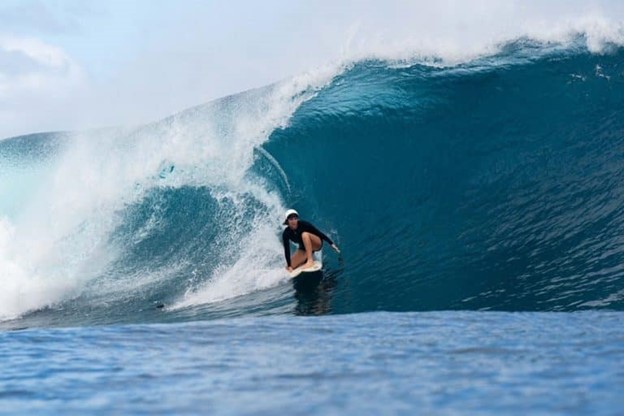Candelaria Resano braves the world’s most dangerous waves

Resano is the first Nicaraguan surfer to compete in the Olympic Games. “Nicaragua and its beaches are my home,” she says.
HAVANA TIMES – Nicaraguan surfer Candelaria Resano, 18, starts her training routine at 5:00 a.m. on the beaches of Teahupo’o, Tahiti. The young athlete spends at least eight hours a day in what surfers consider “the most dangerous waves in the world.” It is part of her preparation to represent Nicaragua at the Olympic Games in Paris, which start on July 26, 2024.
Resano is the first Nicaraguan surfer to compete in the Olympic Games. Surfing was included as a water sport in the Tokyo 2020 Olympics.
“It is an honor to represent Nicaragua. I have worked very hard to take my country to high places. I didn’t start preparing a month ago, I started four years ago, when I decided I wanted to be part of these Olympics. And I worked very hard until I qualified,” says Resano.
At the beginning of June, the young Nicaraguan traveled to the island of Tahiti, in French Polynesia, where the Olympic surfing competition will be held.
These beaches are considered some of the most dangerous in the world for surfing, because their waves break over a shallow coral bottom, where any surfer who takes a bad fall can be seriously injured or killed, according to international media.
In July 2023, Resano suffered a broken nose on those beaches because an amateur surfer let his board get away from him and it hit her while she was participating in a camp organized by the International Surfing Association for potential Olympic qualifiers.
At the Olympic Games, the Nicaraguan will compete against 23 athletes from around the world. She is the only Central American in the women’s competition and her goal is “to make history and bring the first Olympic medal [in surfing] for Nicaragua.”

How Resano qualified for the Olympics
Resano qualified for the Olympic Games by obtaining one of the two “universality places” granted by the International Olympic Committee (IOC). Resano and Bryan Pérez from El Salvador won these places among competitors from more than 50 countries. The main requirement was to be among the most qualified surfers to be eligible, and to represent a country that has had little representation in previous games.
“To enter [into the u


